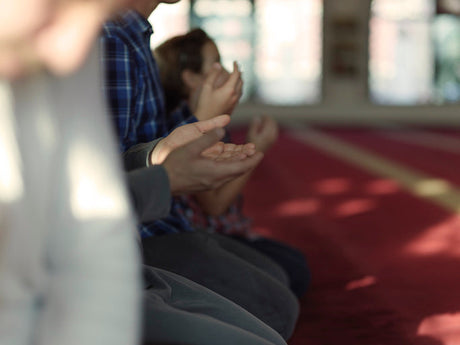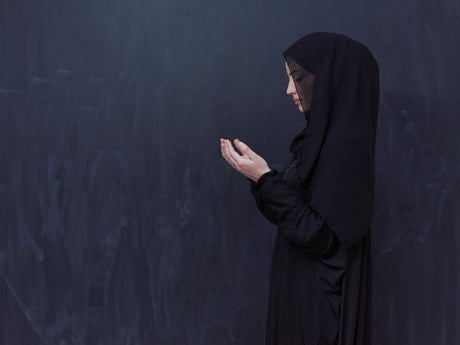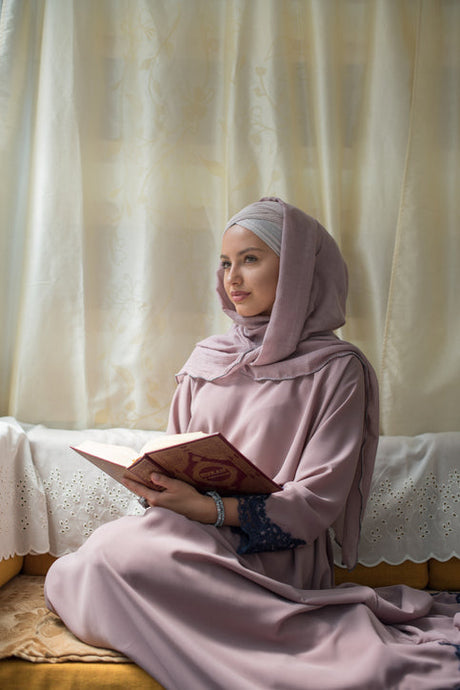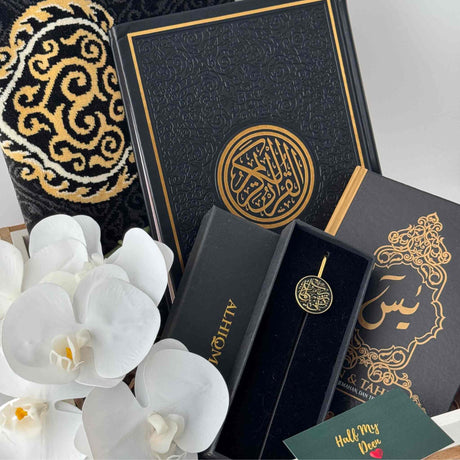
Quranic Versus Guidance and Insights On Marriage
By Sheela M.Ahmed
7 powerful Quran verses about marriage with guidance on love, mercy, and mutual respect for modern Muslim couples building faith-centered homes.
Read more
By Sheela M.Ahmed
7 powerful Quran verses about marriage with guidance on love, mercy, and mutual respect for modern Muslim couples building faith-centered homes.
Read more
By Sheela M.Ahmed
8 powerful Quran verses about good character, kindness, and humility with practical applications for modern Muslim families seeking righteous living.
Read more
By Sheela M.Ahmed
Discover 7 powerful Quran verses about life's purpose with practical guidance for modern Muslim families seeking meaningful, faith-centered living.
Read more
By Sheela M.Ahmed
Discover 7 powerful Quran verses about patience (sabr) with practical guidance for modern Muslim families seeking strength through daily challenges.
Read more
By Sheela M.Ahmed
Learn the powerful prophetic dua for trials that transforms hardship into hope and active trust in Allah's perfect plan.
Read more
By Sheela M.Ahmed
A beautiful dua to seek forgiveness for others and foster unity in the Muslim ummah.
Read more
By Sheela M.Ahmed
Discover powerful duas from the Quran that bring peace during life's challenges, blending timeless Islamic wisdom with contemporary Southeast Asian Muslim life.
Read more
By Sheela M.Ahmed
Some deep meanings to think about are "Inna lillahi wa inna ilaihi raji'un" and "Allahummaghfirlahu warhamhu wa 'afihi wa'fu anhu." These words show faith, patience, and prayer for the departed,...
Read more
By Sheela M.Ahmed
Recite Surah Yasin, Ayat 9, for divine protection. This powerful verse shields believers from harm and negative influences, ensuring safety and peace.
Read more
By Sheela M.Ahmed
Have you ever thought about why Muslims say "Allahumma Ameen" after they pray? This strong phrase strengthens worship ties, affirms faith, and asks Allah for forgiveness. Find out what it...
Read more
By Sheela M.Ahmed
This dua asks for sufficiency, halal sustenance, and contentment, reinforcing reliance on Allah alone. Discover how reciting it regularly can bring financial and spiritual peace into your life.
Read more
By Sheela M.Ahmed
Find out the deeper meaning of "Allahumma barik lana fima a'taytana wa waffiqna li shukr ni'matik," a powerful dua for blessings and thanks when giving gifts, and how to use...
Read more
By Sheela M.Ahmed
In Surah An-Naml, Ayah 30, "Innahu min Sulayman wa innahu Bismillahir Rahmanir Rahim" shows how smart Prophet Sulayman was to start his letter with humility and ask the Queen of...
Read more